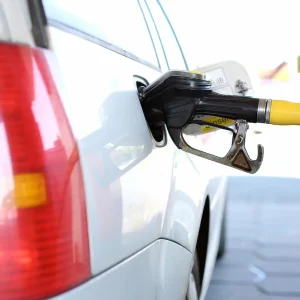The mayor of London, Sadiq Khan, has confirmed he will introduce the controversial Ultra-Low Emission Zone from 8 April 2019, subject to a consultation.
The start date is a lot sooner than the September 2020 roll-out originally suggested by former mayor Boris Johnson, and represents Khan’s ambition to fight pollution in the capital.
Initially covering Greater London – the area already occupied by the Congestion Charge zone – the mayor said the ULEZ will expand to cover the North and South Circular roads by 2021, subject to a public consultation.
Petrol vehicles that don’t meet the Euro4 emissions standard and diesel vehicles that do not meet the Euro6 regulations will have to pay the £12.50 daily ULEZ fee, on top of the daily £11.50 C-Charge when applicable.
The ULEZ will run for 24 hours a day, 365 days a week.
Black cabs, however, will be exempt from the charge, but all new taxis will need to be zero-emission capable from next year.
The mayor claimed the ULEZ will help central London achieve a 50% reduction in road transport-related NOx emissions in 2020.
“The air in London is lethal and I will not stand by and do nothing. Today I’m announcing bold proposals which are critically needed to safeguard Londoners from our air-quality health crisis,” Khan said. “I am introducing a new T-Charge this October and I want to introduce the Ultra-Low Emission Zone in central London in April 2019. This alone will mean the capital has the toughest emission standard of any world city.”
Khan added: “Now I urge the Government to step up and match my ambition to transform the appalling air we breathe. Ministers need to deliver a national vehicle scrappage fund, reform fiscal incentives like Vehicle Excise Duty and pass a powerful new Clean Air Act to end the toxic smog once and for all.”
Colin Stanbridge, chief executive of London Chamber of Commerce and Industry said: “We agree that it is important for the Government and businesses to work together to improve air quality, but are also concerned about the financial impact on small businesses, not least if the goalposts are shifted. “The proposed 2021 date for expanding the ULEZ zone to the north and south circulars comes as some relief given our concerns about the proposal and suggestions it too might be introduced as soon as 2019, certainly not giving businesses enough time to prepare.”
He added: “We continue to call for an economic assessment of the impact of the proposals on London’s small businesses in particular, coupled with steps to make sure that businesses are supported to adapt to any changes.
Tamzen Isacsson, SMMT director of communications & international: “SMMT recognises the air quality challenge and wants to see London and other cities meet their targets. Today’s announcement, however, which brings forward the Ultra Low Emission Zone by 15 months, gives consumers and businesses far less time to adapt and make appropriate purchasing decisions. We want to see policies which encourage fleet renewal, increasing the uptake of the latest, lowest emission technologies in which the industry is investing billions, but this must be done without unfairly penalising motorists who have invested in their vehicles in good faith.”





